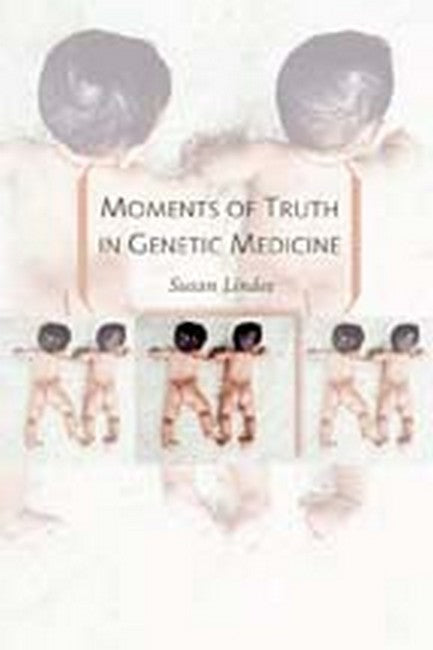Genetic research increasingly dominates medical thought and practice in the United States and in many other industrialized nations. Susan Lindee's original study explores the institutions, disciplines, and ideas that initiated the reconfiguration of genetic medicine from a marginal field in the mid-1950s to a core research frontier of biomedicine. Tracing the work of geneticists and other experts in identifying and classifying disease during the explosive period between 1950 and 1980, Lindee identifies the individual ''moments of truth'' that moved the field away from its eugenic past to the center of a new world view in which nearly all disease is understood to be fundamentally genetic. She suggests that these moments of truth were experienced not only by scientists but also by those who had familial, intimate, emotional knowledge of hereditary disease: patients, family members, and research subjects. Focusing on benchmarks in the field - such as the rise of neonatal testing in the 1960s, genetic studies of unique human populations such as the Amish, the development of human cytogenetics and human behavioral genetics, and the efforts to find genes for rare diseases such as familial dysautonomia - she tracks the emergence of a biomedical consensus that nearly all disease is genetic disease. Using the success of this field as a point of entry, Lindee chronicles both the production of knowledge in biomedicine and changes in the cultural meaning of the body in the late twentieth century. She suggests that scientific knowledge is a community project that is shaped directly by people in many different social and professional locations. The power to experience and report scientific truth may be much more dispersed than it sometimes appears, because people know things about their own bodies, and their knowledge has often been incorporated into the technical infrastructure of genomic medicine. Lindee's pathbreaking study shows the interdependence of technical and social parameters in contemporary biomedicine.Reviews''These fascinating, well-written stories portray what it is like to work in human or medical genetics, both in the clinic and as a researcher.''Uta Francke, Nature''As difficult as it is to pinpoint the key events in history, Lindee manages this well, singling out and humanising the most important events and players.''Lindsay Banham, Lancet''This history will reward anyone interested in the paths from gene discoveries to cures or the potential for genomic medicine.''Science''Captures the complexities of research on genetic disease while prompting us to reconsider the distribution of scientific authority and the dynamics of knowledge production.''Michael R. Dietrich, New England Journal of Medicine''An elegant, accessible, even thrilling book that is itself a moment of historical truth and a must-read.''Alice Wexler, Bulletin of the History of Medicine''An important contribution to our understanding of the making of the future of medicine, not just substantively, but methodologically as well.''Paolo Palladino, Journal of History of Biology''Provocative and thoughtful . . . An important and interesting exploration of postWorld War II genetics and its impact on the current revolution in genetics and biology.''Michael Yudell, Journal of the History of Medicine and Allied Sciences''Lindee argues that the production of scientific knowledge is a community project involving not just researchers, but also research subjects, patients and their families . . . The resulting insight into the structure and organization of contemporary biomedicine is one of the chief contributions of this original and important new book.''Diane Paul, Medical History''Moments of Truth in Genetic Medicine opens up an important area of contemporary biomedicine, the 'genetization' of disease, to historical scrutiny, looking for decisive turning points far beyond the narrow confines of molecular genetics. Written in a highly accessible style, it will be of interest to anyone concerned with the making of biomedical knowledge, genetic and otherwise.''Soraya de Chadarevian, Isis''A fascinating and thorough job of summarizing the emergence of human genetics from an almost totally ignored discipline to its current position as one of the most high-profile biomedical and societal endeavors.''Ronald G. Davidson, American Journal of Medical Genetics Part A

